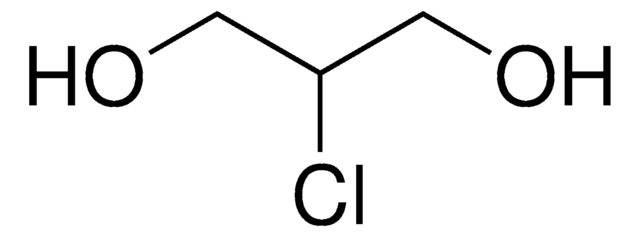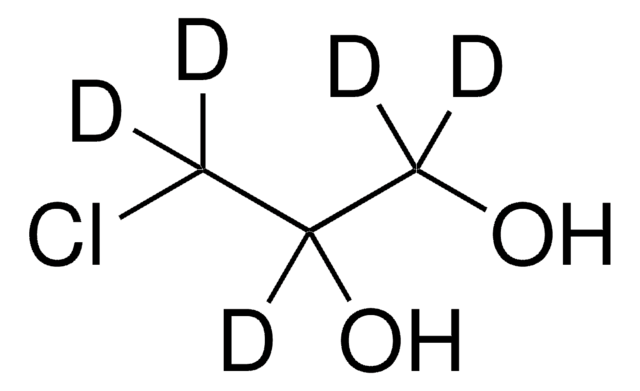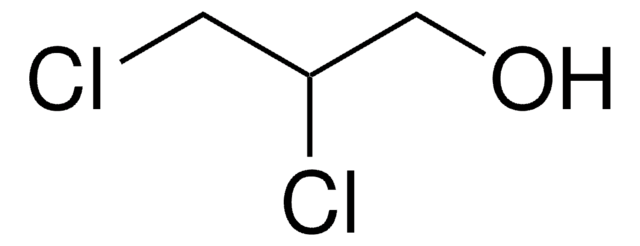74595
(±)-Glycidol
analytical standard
Synonyme(s) :
(±)-Oxirane-2-methanol, 2,3-Epoxy-1-propanol, Glycerolglycide
About This Item
Produits recommandés
Qualité
analytical standard
Niveau de qualité
Densité de vapeur
2.15 (vs air)
Pression de vapeur
0.9 mmHg ( 25 °C)
Pureté
≥95.0% (GC)
Température d'inflammation spontanée
780 °F
Durée de conservation
limited shelf life, expiry date on the label
Technique(s)
HPLC: suitable
gas chromatography (GC): suitable
Indice de réfraction
n20/D 1.429-1.437
n20/D 1.433 (lit.)
Point d'ébullition
61-62 °C/15 mmHg (lit.)
Densité
1.117 g/mL at 25 °C (lit.)
Application(s)
cleaning products
cosmetics
food and beverages
personal care
Format
neat
Chaîne SMILES
OCC1CO1
InChI
1S/C3H6O2/c4-1-3-2-5-3/h3-4H,1-2H2
Clé InChI
CTKINSOISVBQLD-UHFFFAOYSA-N
Vous recherchez des produits similaires ? Visite Guide de comparaison des produits
Description générale
Application
Mention d'avertissement
Danger
Mentions de danger
Classification des risques
Acute Tox. 2 Inhalation - Acute Tox. 4 Dermal - Acute Tox. 4 Oral - Carc. 1B - Eye Irrit. 2 - Muta. 2 - Repr. 1B - Skin Irrit. 2 - STOT SE 3
Organes cibles
Respiratory system
Code de la classe de stockage
6.1A - Combustible acute toxic Cat. 1 and 2 / very toxic hazardous materials
Classe de danger pour l'eau (WGK)
WGK 3
Point d'éclair (°F)
161.6 °F
Point d'éclair (°C)
72 °C
Faites votre choix parmi les versions les plus récentes :
Déjà en possession de ce produit ?
Retrouvez la documentation relative aux produits que vous avez récemment achetés dans la Bibliothèque de documents.
Les clients ont également consulté
Notre équipe de scientifiques dispose d'une expérience dans tous les secteurs de la recherche, notamment en sciences de la vie, science des matériaux, synthèse chimique, chromatographie, analyse et dans de nombreux autres domaines..
Contacter notre Service technique










